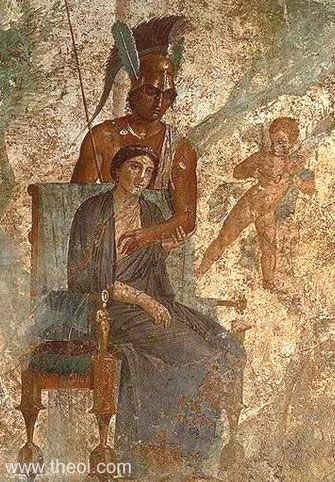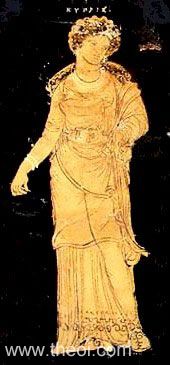

When Alexander the Great started his life, he wasn’t great. He was the son of a fairly great king, King Philip the Second, a man who gave Macedonia access to the sea. He had a fairly great teacher, Aristotle, who taught him all he knew, a considerable amount. But he himself, a small boy, was not great. By the time Alexander was thirty-two, he was one of the greatest men to ever walk the Earth. The one thing that set him apart from the rest of the leaders of his time was an empire: Persia. The greatest empire and the greatest man of the time were head to head, both formidable opponents. Although Alexander was said to be the ruler of Persia, who can really say that he simply took Persia, without a fight or a change in himself? To look at his lifetime, we see him start off with a simple goal and a clear sense of right and wrong. By the end of his life, he had conquered much of the known world, but he had also committed war crimes and become a completely different person. Alexander the Great became great through conquering Persia, but Persia was never made less great by its “loss”. When we see the effect on the two opponents, it seems obvious that Alexander never stood a chance against Persia, and his early demise evidenced Persia’s domination over Alexander.
When Alexander became the king of Macedonia, the twenty year old was chomping at the bit to do something impressive for his country. He first took care of the independent nations of barbarians all around Macedonia. Philip had conquered them during his reign, but had simply left them there. Now they were threatening to revolt, and Alexander simply crushed them into submission. That simple act had benefited his country, but Alexander was out to prove something more. He wanted revenge on the Persians, for the crimes they had committed against his people hundreds of years before. He gathered his Macedonian army, and went to avenge his people. At this point, Macedonia was slightly influential, but was an inconsequential speck compared to Persia. Alexander had very few troops, only about thirty thousand foot soldiers and four thousand cavalry. Darius, the king and commander of Persia, had huge numbers of soldiers and cavalry that made Alexander’s army look like child’s play. In their first battle against each other, Alexander’s victory proved that he was a force to be reckoned with. They met at the Granicus River, where twenty thousand Persian foot soldiers and two thousand five hundred Persian cavalry were lost. Alexander’s army lost only thirty four men. The victories he had, such as this one, and the signs and symbols that he interpreted as his domination over Persia, like the Gordian Knot, only added to his cockiness. However, the war against Darius was already starting to take a toll on Alexander. He was kept in Cilicia while Darius marched from Susa because of an illness. He started back on the trail as quickly as he could, burning the candle at both ends already. During the battle itself, Darius wounded Alexander in the thigh, which he fought through any way. After winning that battle as well, he allowed Darius’s wife and daughters to go back to their home without any harm done to them, and with more than they came with in terms of pension for maintenance. The act of letting these women go showed Alexander’s great character. He didn’t take advantage of the innocent, no matter their history. This is what changed about him from the beginning to the end of his reign. (http://classics.mit.edu/Plutarch/alexandr.html)
Even after Alexander had finished off the Persian army and punished Persia for the crimes against Greece so many centuries before, he now had the goal of absolute power within him; the conquering of Persia had corrupted him. He stayed in Persepolis for months, and then ordered it to be burned down. This is where we start to see the Alexander taken over by power. He has already proven his point, and he “rewards” a city for their hospitality by burning it down! He is back to being the fair and noble ruler, however, after Darius’s own men leave him in the path of Alexander to die. One of Alexander’s soldiers comforts Darius in the last moments of his life, and then the army is off to find the men who betrayed and killed Darius. He found them, and had them killed to avenge Darius’s death. Although he was merciful to his individual enemies, it seems that Alexander had no sympathy for the thousands of innocent people in the cities that he sacked without cause. (http://www.livius.org/aj-al/alexander/alexander10.html)
A short time after the assassins had been caught, people began to notice and disapprove of Alexander’s new habits. He was wearing Persian clothes made for royalty, and people thought that he was starting to lose touch with his Greek roots. Now that he was the ruler of Persia, he had forgotten how much he hated them! He was also trying to be a good king to the different parts of Persia, but without knowing very much of their culture, that was very difficult. For instance, his coins depicted him as Hercules; someone that the Iranians thought was evil. As much as he tried to become Persian, he simply could not do it. (http://www.livius.org/aj-al/alexander/alexander11.html)
Alexander the Great was a man whose power went to his head. By conquering Persia on a material level, Persia conquered him down to the bone. Leaders and people hungry for power take heed from him; power is like a drug. It is addicting, and will kill you from the inside out. Alexander’s quest to conquer Darius was a success, but a country will survive what a human cannot, and Persia could not be broken down by Alexander. All that we can say to this leader’s death and the destruction of Persia later on is this: without Persia, Alexander would not have been known. But without Alexander, Persia would have still been the mightiest empire of its time. In fact, without Alexander breaking it up to his generals after his death, Persia could still be the greatest empire! Alexander set out to conquer a Persia. Persia dominated him.
Works Cited
Alexander. MIT. Web. 8 Mar. 2010. .
Alexander the Great (10). Livius. Web. 8 Mar. 2010. .
Alexander the Great (11). Livius. Web. 8 Mar. 2010. .
Photograph. File:Alessandro Magno (356-323 A.C.) - Monaco - Glyptotek - Foto Di Giovanni Dall'Orto.jpg. Wikimedia Commons. Web. 8 Mar. 2010. .
Photograph. File:Perská-říše-490přKr.png. Wikimedia Commons. Web. 8 Mar. 2010. .






